You can also listen to this essay as a podcast by pressing play below.
2023 is almost over and on many levels, I will be glad on a personal note to see it go. As some of you know my mother had a stroke in July of this year. They say the first year of stroke recovery can be a challenge and that has been the case. The upside is that my Mom is resilient through all the ups and downs and we got to celebrate her turning 90 this month. Here’s hoping 2024 is better for her, myself, and my husband who has been a saint through all of this.
When it comes to the podcast, I was going to try to do a published episode of the Best of 2023 (and I might still do it, but don’t wait for it), but taking care of Mom and pastoring a church during Advent kind of take precedent. So, you are getting this post with links to those episodes. Let’s get started.
In February 2023 I interviewed Ben Crosby, an Episcopal priest studying in Montreal. He wrote on his Substack about how it seems quite common for leaders in Mainline Protestant denominations to be in denial about the ongoing decline in their midst. Instead, we get a lot of happy talk about “how God is doing a new thing” as our churches close and our denominations shrink. Ben’s words were words of assurance because I realized I wasn’t going crazy. There are a lot of people out there who love to do nothing but make fun of mainline decline or shake their heads about the sad state of this tradition. Ben’s essay and his interview show that some still care about the tradition and I was glad to have had the chance to talk to him and hope to do so again.
Episode 132: Telling the Truth on Church Decline with Ben Crosby
If you are part of a mainline Protestant denomination, you know that decline has been part of the story for over 50 years. And yet, at times people act like this isn’t a problem. Why is that? Why can’t we admit there is a problem and then come up with solutions that can help struggling congregations?
While 2023 might have been another year more Mainline Protestant churches end up closing and the tradition as a whole keeps shrinking, there are still signs of vibrancy. In March, I chatted with Dawn Darwin Weeks, one of the pastors of Connection Christian Church in Odessa, TX. Connection started as First Christian Odessa, but they sold their building, moved, and got a new name. Dawn talked about the journey which is summed up in her book, “Breakthrough.” After hearing about churches closing in our denomination of the Christian Church (Disciples of Christ), it was good to hear of a story of a church that was being renewed by listening to the Holy Spirit.
Episode 136: A Church Grows Again in Odessa with Dawn Darwin Weaks
“We know how to be a Disciple in a town full of Baptists.” That was what the head of the search committee said to Pastor Dawn Darwin Weaks they asked her and her husband to consider being co-pastors at First Christian Church in Odessa, Texas. Their saying yes to the church put both pastors and the congregation on a journey of revitalization, renewal, …
In October I had the opportunity to chat with Grayhame Bowcott a priest in the Anglican Church of Canada who helped bring a closed congregation back from the dead. The impetus came from a story in the Anglican Journal about how the congregation went from six miserable Anglicans to a thriving congregation that made an impact in its rural Ontario community.
In the 19th century, it wasn’t that unusual in some traditions for laypeople to help start churches. These days, it is more common to see churches started by pastors. However, there are still examples of the laity starting new communities of faith. My interview last fall with Laura Cottington of St. Michael Community Church in St. Michael, MN about lay-led church planting reminded me you didn’t need to be a pastor to plant a church, but you do need a heart for mission.
Episode 153: Lay-Led Church Planting with Laura Cottington
In this episode, we hear from Laura Cottington, a lay leader and co-founder of Saint Michael Community Church in Saint Michael, Minnesota. She discusses the challenges and strategies of church planting, particularly in a changing landscape where traditional methods may not be as effective. Laura shares her experiences and insights on starting a church w…
The last interview I did for the year with Paul Moore is about a pastor who is passionate about local church ministry and is trying to find a way with his congregation to reverse decades of denominational decline. We talked about why denominations like the Presbyterian Church (USA) haven’t done anything to stem the decline but also what he’s doing by hiring staff that will work on children and families.
Church and Main Podcast: Paul Moore
This past summer I attended the General Assembly of the Christian Church (Disciples of Christ) my denomination in Louisville, KY. It’s always a great time to catch up with other members of the church from across North America. I chatted with two pastors from my home state of Michigan about the lay of the land in the Great Lake State. The outlook isn’…
As an African American, I want to do more episodes on race, but I’ve hesitated because I feel like I don’t fit in with the modern ethos that emphasizes antiracism. I also don’t fit with those who try to downplay or even ignore race. That’s why I was so thankful to talk to George Yancey earlier this year about a third approach, mutual accountability. While we don’t live in an era like Jim Crow, there are still issues that can be called racial issues. We have come a long way as a nation when it comes to race and we still have a ways to go. I hope in 2024 to talk to other thinkers on this issue that aren’t tied to either the antiracist or colorblind camps.
Episode 140: Beyond Colorblindness and Antiracism with George Yancey
Is racism intractable in American society? Or is racism just a thing of the past and we need to “get over” race? Colorblindness and antiracism are the leading ways of looking at race in America, but neither has been effective in addressing racial tensions in the United States. Colorblindness ignores the realities of race and in doing so ignores the h…
One of the things I remember from my interview with Seth Perry is how church members can understand pastors who struggle with addiction but don’t understand pastors who deal with mental illness. In my interview with Seth, we talked about his journey with bipolar disorder and his decision to “come out” and be honest about his mental illness. This was a difficult interview, not because of the topic, but because I had to do the interview three times due to recording issues. Seth was incredibly patient and for that I am thankful.
Episode 143: Giving Up the Stigma of Mental Illness with Seth Perry
In this episode, we talk with Pastor Seth Perry, the pastor of Elim Lutheran Church in Scandia, MN. During Lent when people give up certain things for the season, Seth is asking the church to “give up the stigma” of mental illness. Seth talks about living with bipolar disorder, the importance of being honest about mental illness in the church, and menta…
Late last year, I started reading Church and Crisis of Decline by Andrew Root. There aren’t many books that can make me look at faith differently, but this one did. It blew my mind. I had to get Andrew in the show and I was so happy when he was able to do so last spring. He’s a delightful person and I want to have him back on the podcast again.
Episode 142: Church and the Crisis of Decline with Andrew Root
If you’re the pastor or leader of a mainline Protestant congregation you have heard about your declining congregation for years if not decades. You probably even lead a congregation that wonders if its best days are behind them. Denominations, specialists and others have some idea on how to help your congregation get back on the path towards growth. We…
The final two episodes focus on the aftermath of October 7 and the massacre of Israelis by Hamas terrorists. I chatted with Rabbi Brad Hirschfield about having hope in the wake of such madness. Rabbi Brad exuded incredibly meaningful joy even in the face of such horror. He didn’t ignore October 7, but Hamas didn’t steal his hope.
Episode 157: Rage and Hope After the Hamas Massacre with Rabbi Brad Hirschfield
Some have likened the terrorist attacks on October 7 which killed some 1400 Israelis to that nation’s September 11. There is something to that reference on the surface. The brazenness of the attacks with Hamas terrorists overrunning barriers, and using paragliders and drones to attack civilians can remind Americans of planes hitting the World Trade Cent…
Finally, I was interested in how the leaders of Mainline Protestant Churches tend to not be so evenhanded when it comes to Israel/Palestine. In November, I chatted with Todd Stavrakos about how Mainline Churches have been biased against Israel and how that hurts our relationship with Jews in America.
Episode 159: Mainline Churches and Israel-Palestine with Todd Stavrakos
For the complete episode, please click on the video below or use the button.
There are several other episodes to listen to and just because they aren’t listed here doesn’t mean they were terrible! These are just the ones that were memorable to me.
What comes in 2024? Hopefully more episodes on those pockets of growth with Mainline Protestant churches. I’d like to do something on religion and the election and also how Christians should respond to some of the horrible messages coming from Donald Trump as he runs for President yet again. I’ve been wanting to do an episode on the working class and churches for years now and I hope to find someone to talk to about this in 2024. I want to talk about Canada’s MAiD law which allows assisted death. What should the church say about that? What is the church in Canada saying (or not saying)?
Finally, I want to say thanks to all those who listened to the podcast and especially those who donated. It means a lot to have people who have supported this crazy dream of starting a podcast.
May God be with us all in the coming year and be on the lookout for more episodes!









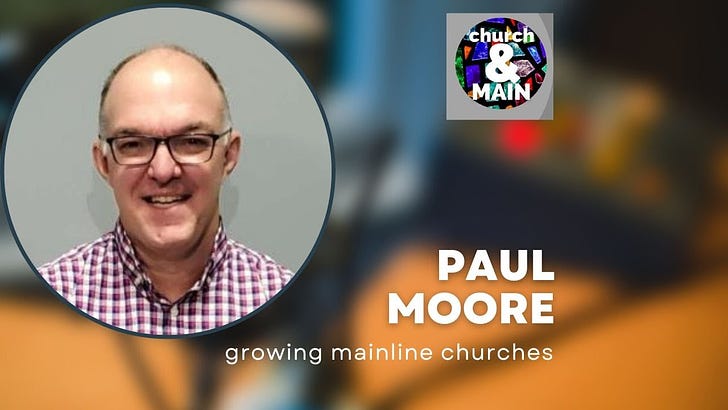


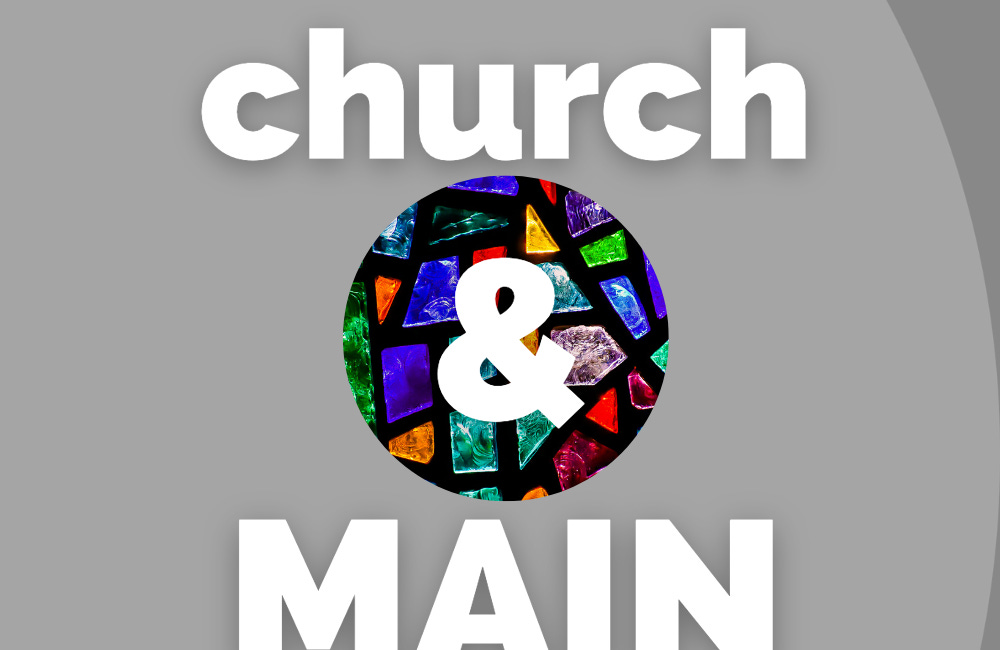




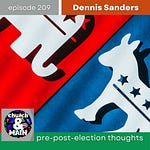
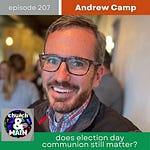



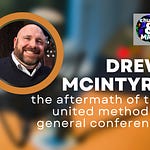

Share this post